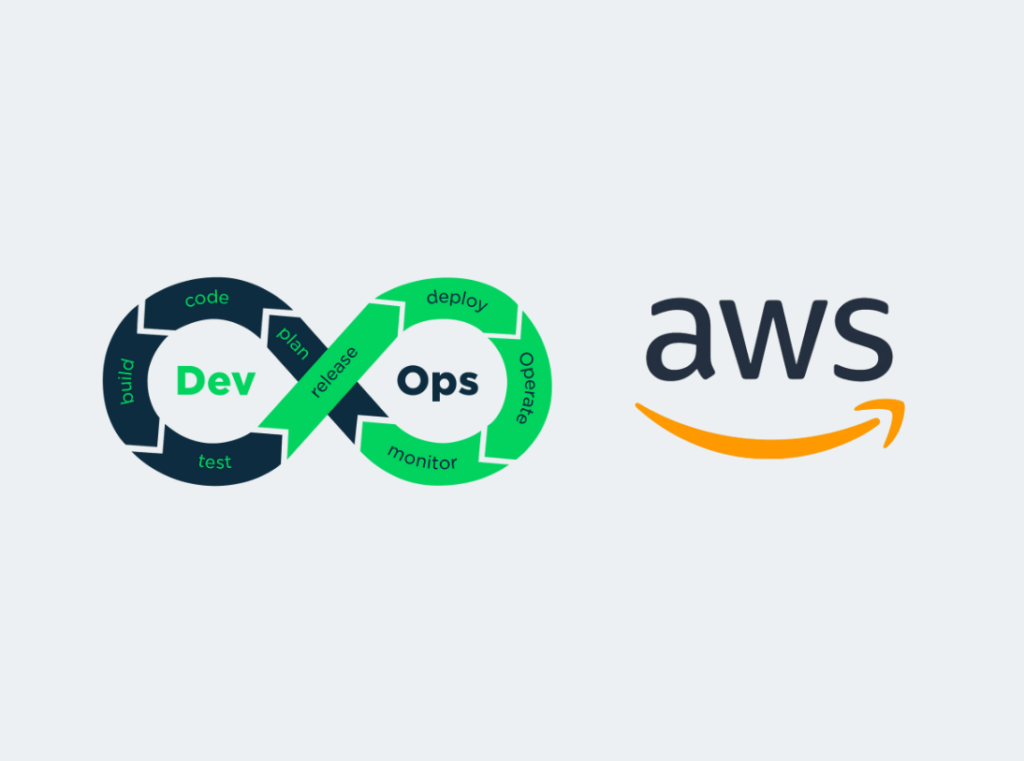DevOps with AWS

A DevOps Engineer focuses on automating and streamlining the software development and deployment process, ensuring that the development and operations teams work together efficiently. This role requires a blend of technical expertise and collaboration skills to manage the entire software lifecycle effectively.
Our Best Online DevOps with AWS Course Training in Hyderabad offers a comprehensive curriculum covering essential DevOps practices, tools, and methodologies. The course provides a strong understanding of how to automate infrastructure, deploy applications, and monitor performance using AWS (Amazon Web Services).
Course Content
DevOps
1. DevOps Overview
2. Linux Basics
3. Git
4. Maven
5. Nexus
6. Jfrog
7. Sonarqube
8. Tomcat
9. Jenkins
10. Ansible
11. Docker
AWS
1. AWS Overview
2. Overview of Cloud Computing
3. AWS IAM (Identity Access Management)
4. Amazon EC2 (Elastic Compute Cloud)
5. AWS EBS (Elastic Block Storage)
6. AWS ASG (Auto Scaling Group)
7. AWS ELB (Elastic Load Balancing)
8. AWS S3 (Simple Storage Service)
9. AWS VPC (Virtual Private Cloud)
10. AWS VPC Peering
11. AWS CloudWatch
12. AWS CloudTrail
13. AWS KMS (Key Management Service)
14. AWS SES and SNS
15. AWS RDS (Relational Database Service)
16. AWS Route 53
17. AWS ACM (AWS Certificate Manager)
Terraform
1. Introduction to Terraform and IaC
2. Setting Up Terraform
3. Core Terraform Concepts
4. Working with Terraform
5. Terraform Formatting and Validation
6. Terraform Debugging
7. Terraform Variables
8. Structuring Terraform Code
9. Terraform Parameters and Providers
10. Advanced Terraform Concepts
11. Terraform State and Taint
12. Data Sources in Terraform
13. Terraform Import
14. Provisioners in Terraform
15. Terraform Workspaces
16. Terraform Modules
17. Terraform Backends
18. Sensitive Data Management
Kubernetes
1. Introduction to Kubernetes
2. Working with Amazon Elastic Kubernetes Service (Amazon EKS)
3. Core Kubernetes Concepts and Basics
4. Understanding Kubernetes Services
5. Managing ConfigMaps and Secrets in Kubernetes
6. Exploring Kubernetes DaemonSets
7. Stateful Applications with Kubernetes StatefulSets
8. Kubernetes Storage and Volumes
9. Monitoring Resources with Metrics Server
10. Autoscaling in Kubernetes (HPA)
11. Probes in Kubernetes (Readiness and Liveness)
12. Kubernetes Administration and Namespace Management
13. Logging with EFK Stack in Kubernetes
14. Monitoring Kubernetes with Prometheus and Grafana
15.Upgrading Amazon EKS Clusters
16.AWS ECR
Why we choose Code Kreations
We offer comprehensive training with guaranteed career success
100% Placement Assistance
Guaranteed job placement with internship
opportunities at leading tech companies.
Communication Skills
Comprehensive training in professional
communication and soft skills.
Technical Skills
Industry-relevant technical training with
hands-on practice.
Realtime Projects
Work on real-world projects with
industry mentors.
Office Environment
Experience real office culture and
professional work environment.
Cyber Security &
Prompt Engineering
Expert guidance in emerging technologies
with real employee mentorship.
Registration Form
Frequently Asked Questions
What is DevOps, and why is it important?
DevOps is a set of practices that combines software development (Dev) and IT operations (Ops) to improve collaboration, automation, and delivery speed. It helps reduce time to market and improves system reliability.
What skills do I need to learn DevOps?
You need skills in cloud computing (e.g., AWS), automation tools (e.g., Jenkins, Terraform), scripting (e.g., Python, Bash), version control (e.g., Git), and containerization (e.g., Docker).
Is programming knowledge necessary for DevOps?
Basic programming or scripting knowledge is useful for automating tasks, but you don’t need to be an expert in coding to start learning DevOps.
Can I learn DevOps without a technical background?
Yes, you can, but it might be helpful to learn the basics of Linux, networking, and cloud computing to make the transition easier.
What is the career path after learning DevOps?
After learning DevOps, you can pursue roles like DevOps Engineer, Cloud Engineer, Automation Engineer, or Site Reliability Engineer (SRE).
Still have a question?
Let me know if you want any further explanation! 😊Feel free to contact us!